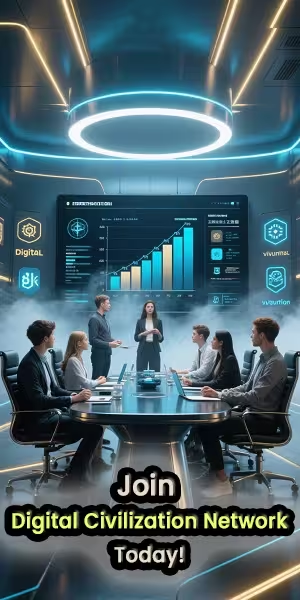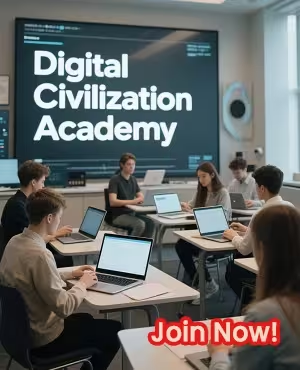Why elementary school is the foundation of lifelong learning isn’t just an educational catchphrase; it’s a scientific reality backed by decades of research and countless success stories. The years between ages 5 and 11 represent the most critical period for cognitive, social, and emotional development that will shape every future learning experience.
Picture this: a six-year-old walks into their first-grade classroom, eyes wide with curiosity, ready to absorb everything the world has to offer. Fast-forward thirty years, and that same person is leading a Fortune 500 company, conducting groundbreaking research, or creating art that moves millions. What happened in between? The answer might surprise you – it all traces back to those crucial elementary school years.
Why Elementary School Shapes Your Entire Future
The Brain Science Behind Elementary Education
During elementary school years, a child’s brain undergoes remarkable transformations. Neuroscientists have discovered that this period marks the peak of neuroplasticity – the brain’s ability to form new neural connections at an unprecedented rate. Every lesson learned, every problem solved, and every social interaction literally rewires the developing mind.
Dr. Patricia Kuhl, a leading neuroscientist at the University of Washington, describes this phenomenon as “windows of opportunity” that will never be as wide open again. The mathematical concepts grasped in second grade don’t just help with arithmetic; they establish logical thinking patterns. The reading comprehension skills developed in third grade don’t merely improve literacy; they create the foundation for critical analysis that will serve students throughout their academic and professional careers.
Building Blocks of Academic Success
Elementary school serves as the architectural blueprint for all future learning. Consider the fundamental skills developed during these formative years:
- Reading and Language Arts: The ability to decode written language, understand complex narratives, and express thoughts clearly becomes the gateway to every other subject. A student who struggles with reading in elementary school faces challenges across all disciplines, from understanding science textbooks to interpreting historical documents.
- Mathematical Reasoning: Elementary math isn’t just about memorizing multiplication tables. It’s about developing logical thinking, pattern recognition, and problem-solving strategies that apply to everything from budgeting personal finances to analyzing data in advanced research.
- Scientific Inquiry: Those simple experiments with magnets and plants teach more than basic science facts. They instill the scientific method – observation, hypothesis, testing, and conclusion – which becomes the foundation for critical thinking in any field.
- Social Studies Foundation: Learning about communities, cultures, and history in elementary school develops empathy, cultural awareness, and civic responsibility that shapes informed, engaged citizens.
The Social and Emotional Learning Laboratory
Elementary school serves as society’s first great social experiment for children. Here, they learn invaluable life skills that no textbook can teach:
- Collaboration and Teamwork: Group projects, classroom discussions, and playground interactions teach children how to work with others, respect different perspectives, and contribute to collective goals. These skills become essential in every workplace and relationship.
- Resilience and Perseverance: Learning to bounce back from a failed test, trying again after struggling with a difficult concept, or working through conflicts with classmates builds emotional resilience that serves students throughout their lives.
- Self-Regulation and Independence: Elementary school gradually transitions children from complete dependence on adults to independent learners who can manage their time, organize their materials, and take responsibility for their actions.
Creating Lifelong Learners, Not Just Test-Takers
The most successful elementary schools understand that their mission extends far beyond preparing students for the next grade level. They’re cultivating curiosity, creativity, and a genuine love of learning that will sustain students through decades of continued education and professional development.
This approach recognizes that in our rapidly changing world, the specific facts learned in elementary school may become outdated, but the learning strategies, critical thinking skills, and intellectual curiosity developed during these years remain invaluable throughout life.
- Growth Mindset Development: Elementary teachers who emphasize effort over innate ability help students develop a growth mindset – the belief that intelligence and skills can be developed through dedication and hard work. This mindset becomes crucial when facing challenges in high school, college, and career advancement.
- Learning How to Learn: Elementary school teaches students how to ask questions, seek resources, and approach unfamiliar concepts systematically. These meta-cognitive skills enable lifelong learning in any field or situation.
How Elementary Years Determine Your Life Path
The Ripple Effect Through Educational Levels
Research consistently shows that students who receive strong elementary education perform better throughout their academic careers. The National Assessment of Educational Progress has tracked student performance for decades, revealing that elementary school achievement strongly predicts high school graduation rates, college attendance, and career success.
Students who master reading by third grade are four times more likely to graduate from high school on time. Those who develop strong mathematical reasoning skills in elementary school are significantly more likely to pursue and succeed in STEM fields. The foundation built in elementary school doesn’t just support the next level; it influences the trajectory of an entire educational journey.
Beyond Academics: Character Formation
Elementary school plays a crucial role in character development and moral reasoning. Through classroom rules, peer interactions, and teacher guidance, children develop their sense of right and wrong, learn to consider others’ feelings, and begin forming their personal value systems.
These early experiences with fairness, honesty, and respect become the moral compass that guides decision-making throughout life. The elementary school teacher who takes time to help a child understand why honesty matters or why it’s important to include everyone in playground games is shaping future leaders, parents, and community members.
The Technology Integration Challenge
Modern elementary education faces the unique challenge of preparing students for a digital future while ensuring they don’t lose essential human skills. The most effective programs integrate technology as a tool for learning rather than a replacement for fundamental skills like handwriting, face-to-face communication, and sustained attention.
This balanced approach ensures that students develop digital literacy alongside traditional academic skills, preparing them for a world where both will be essential.
Conclusion: Investing in Tomorrow
Understanding why elementary school is the foundation of lifelong learning isn’t just important for educators and parents – it’s crucial for society as a whole. Every dollar invested in quality elementary education, every hour spent supporting young learners, and every effort made to improve elementary school programs pays dividends for decades to come.
The six-year-old walking into that first-grade classroom carries the potential to change the world. Elementary school is where we nurture that potential, build the foundation for all future learning, and set the stage for a lifetime of growth, discovery, and contribution to society.
The foundation built in elementary school doesn’t just support academic success; it creates curious, confident, capable individuals ready to tackle any challenge life presents. That’s the true power of recognizing elementary school as the cornerstone of lifelong learning.
Elementary School: The Secret to Lifelong Success


